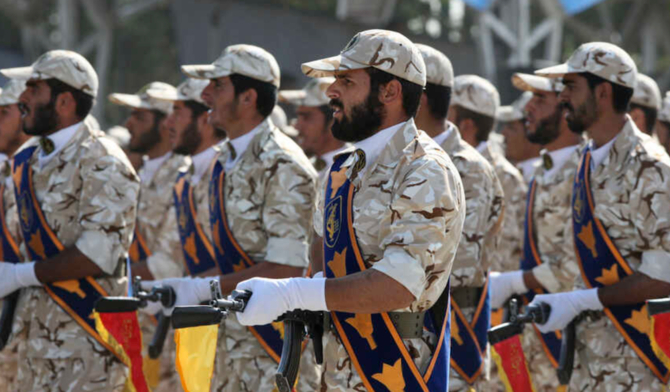
- ARAB NEWS
- 13 Jul 2025

Maria Botros
DUBAI: The US has designated a network run by the Islamic Revolutionary Guard Corps Quds Force an “international oil smuggling and money laundering network.”
A US Treasury Department report on Wednesday said that officials had facilitated the sale of hundreds of millions of dollars worth of Iranian oil for both the IRGC-QF and Hezbollah.
It acted as a critical element of Iran’s oil revenue generation, and supported proxy militant groups that continued to “perpetuate conflict and suffering throughout the region.”
The department’s undersecretary for terrorism and financial intelligence, Brian Nelson, said the US would continue to strictly enforce sanctions on Iran’s illicit oil trade.
He added that similar sanctions could apply to anyone purchasing oil from Iran.
Ruwan Al-Rejoleh, a MENA expert and consultant based in Washington, called the sanctions an “important step.”
“Assisted by Hezbollah, this oil network has been allowed to operate freely for too long. This is an important step, but the administration must keep pushing Hezbollah and its allies to the margins,” she said. “Hezbollah, who control the Lebanese Energy Ministry, recently took advantage of Lebanon’s energy problems to secure preferential access to the Lebanese market for their masters in Tehran.”
She said Sonatrach, a state-owned Algerian company, had been responsible for sending fuel oil to Lebanon and that its exit had “exacerbated the country’s already crippling” energy problems.
Ghada Aoun, Mount Lebanon’s state prosecutor, launched politically motivated proceedings against Sonatrach, which caused the Algerians to leave, she added.
“Hezbollah used this chaos to secure access for Iran to Beirut’s energy market.”